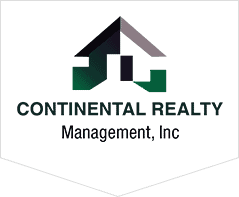A real estate property manager has four major areas of responsibility as follows:
- Marketing and Financial Management
- Tenant and Occupancy
- Facility Management
- Administration and Risk Management
In this article, we’ll be discussing them one by one. But first, let’s get to know what a real estate property manager is.
What is a Real Estate Property Manager?
A real estate property manager is the property owner’s partner in ensuring that the return on investment of the property is maximized. He or she should act in the best interests of the owner to manage and maintain the property and keep it occupied by tenants. A real estate property manager’s responsibilities may extend to collecting rent, budget improvements as well as maintaining important records of the property. All these wouldn’t be possible if the property management company isn’t efficient in the four functional areas initially mentioned.
Real Estate Property Manager’s Responsibilities
Marketing and Financial Management
A real estate property manager should have a good understanding of operating expenses and budgeting. This is an integral part of marketing and financial management, as appropriate rental rates are based on this information. On top of that, a real estate property manager should also have a firm knowledge of the local area, as well as the competitive rental rates.
Some property managers also recommend marketing programs and advertising strategies for the property owner to maximize occupancy and get beneficial rental rates. Financial reporting on a regular basis is also required, so understanding financial statements, profit and loss, income taxes and everything in between are very important skills for a property manager to be able to execute this specific responsibility.
Tenant and Occupancy
Tenants are the lifeblood of the rental property. So, understanding and meeting their needs are crucial, and this doesn’t end on moving day. In fact, this is just the beginning. Tenants will have requests and activities that need to be monitored. Important repairs and maintenance work must be done to ensure the property remains a safe living space. Rent collection in a timely manner should also be observed. Moreover, in an unfortunate case that a tenant needs to be evicted from the property, the real estate property manager should be the one to deal with it.
Facility Management
Physical management of the property is another important responsibility of a real estate property manager. He or she should ensure that the landscaping, electrical, plumbing, roof, walls, and included appliances inside and outside the property are properly maintained and are in good working shape.
Administration and Risk Management
Admin and clerical tasks are also part of a real estate property manager’s responsibilities. He or she needs to ensure that the property complies with federal, state, or local governmental requirements. Meticulous recording of accounting and taxation data is very important. Moreover, all activities and tenant interaction should also be recorded and maintained for specified periods to protect the best interest of the owner.

Recent Comments